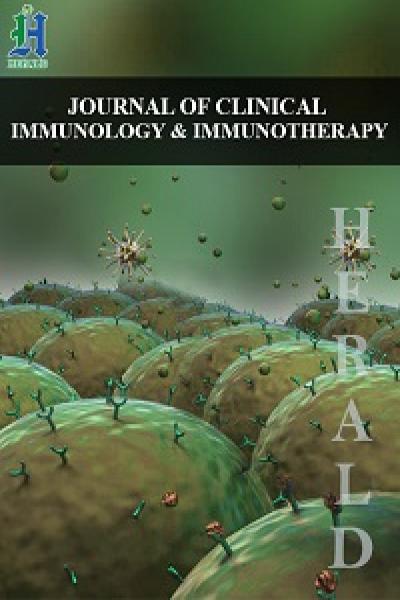
The Impact of Travel Medicine in Preventing Severe Imported Malaria
*Corresponding Author(s):
Fatma AL FarsiMedical Microbiology Residency Program, Oman Medical Specialty Board, Al Azaiba, 130 Muscat, Oman
Email:f.alfarsi09@gmail.com
Introduction
Imported malaria remains an important clinical problem due to the rapid potential progression to severe and life threatening disease in non-immune patients [1]. Major delay in seeking medical help in patients with severe malaria may rapidly progress to multiorgan failure and even the best intensive care support may not prevent fatal outcome. A recent severe malaria case series of 13 patients in Oman has reported that the median treatment delay of seven days explains why these patients ended in intensive care with multiple symptoms of severe malaria and often multiorgan failure. Moreover, only one patient had received malarial chemoprophylaxis pre travel. This underlines the lack of awareness of travelers’ health and pre travel information. This delay in seeking medical attention and poor compliance to prophylaxis measures could be improved if the patients would be counseled before travel and clear travel instructions were provided [2].
This work, entitled “Severe imported malaria in an intensive care unit: A case series” has been published in ID cases journal. In this article, we described the clinical spectrum, treatment practices, outcome of severe malaria cases admitted to an ICU in a tertiary hospital in Oman over a 6 years period (January 2012-October 2018). We found that the interquartile range (IQR) of hospital stay duration was 7-18.5 days (total range: 2-130 days) and the median length of stay in the ICU was 8 days. Patients received supportive treatment in ICU according to the dysfunctions presented. Five (38%) patients required inotropes to maintain a blood pressure over 90 mmHg. Invasive ventilator support was needed in 8 (62%) patients for a period varying from 2 to 23 days due to ARDS. Four (31%) patients received packed red blood cell transfusion and one (7%) had an exchange transfusion. Seven patients developed Acute Kidney Injury and five (38%) patients required continuous renal replacement therapy with median of 6 days duration (2-14 days). All patients had good outcome and no subsequent complications persisted with the exception of one case, which developed cerebral edema which was subsequently complicated by obstructive hydrocephalus and ischemic hypoxic encephalopathy. Despite, being young (18 years), with no comorbidites, and in spite of receiving appropriate management in ICU, she developed severe, irreversible brain damage as a result of cerebral edema. This was a P. falciparum case and there was a delay in seeking medical help after symptoms started 11 days before admission. Hence early administration of antimalarial therapy and good ICU care could have prevented this outcome.
Pre-travel advice and use of preventive measures probably have prevented infection, reduced morbidity associated with infection, reduced length of stay in hospital and hence resources [2,3]. Travel health is a specific medical discipline designed to prevent and manage illnesses associated with international travel. It is usually delivered through primary healthcare with support from specialised units and central public health authorities [4]. The travel health service will strengthen the existing surveillance of infectious diseases by ensuring early diagnosis and providing adequate treatment of infections acquired outside of the country at all levels of healthcare [4].
The existing pre- travel health service in Oman includes a sustained supply of relevant vaccines and drugs, especially for malaria chemoprophylaxis [4]. One study found that only 22.5% of residents of Oman departing from Muscat International Airport had received pre-travel advice, only 6.9% had taken any pre-travel preventive measures like a prescription for malaria chemoprophylaxis or immunisations [5]. Oman's Ministry of Health is in the process of establishing a travel health service at a national level to tackle travel-related illnesses which threaten the health of the country’s population [4]. Practitioners should be skilled in performing a detailed risk assessment for each individual traveler in order to accurately evaluate traveler specific risks, and to advise on the most appropriate interventions to promote health and prevent adverse health outcomes during travel [6]. Travel medicine is very important to increase awareness among population and to establish good strategies to reduce communicable disease among travelers.
References
- Kurth F, Develoux M, Mechain M, Malvy D, Clerinx J, et al. (2017) Severe malaria in Europe: An 8-year multi-centre observational study. Malaria J 16: 57.
- Al Farsi F, Chandwani J, Mahdi AS, Petersen E (2019) Severe imported malaria in an intensive care unit: A case series. IDCases 17: e00544.
- Christen D, Steffen R, Schlagenhauf P (2006) Deaths caused by malaria in Switzerland 1988-2002. Am J Trop Med Hyg 75: 1188-1194.
- Al-Abri S, Al-Lamki S, Petersen E, Al-Mandhari A (2020) The Future Importance of Travel Health in the Middle East: Oman's opportunity to enhance its services. Sultan Qaboos Univ Med J 20: e121-e124.
- Kurup PJ, Al Abri SS, Al Ajmi F, Khamis HA, Singh J (2019) Knowledge, attitude and practice of travel medicine among primary care physicians in Oman: The need for intervention. East Mediterr Health J 25: 40-46.
- Aw B, Boraston S, Botten D, Cherniwchan D, Fazal H, et al. (2014) Travel medicine: What's involved? When to refer?. Can Fam Physician 60: 1091-1103.
Citation: Farsi FAL (2021) The Impact of Travel Medicine in Preventing Severe Imported Malaria. J Clin Immunol Immunother 7: 058.
Copyright: © 2021 Fatma AL Farsi, et al. This is an open-access article distributed under the terms of the Creative Commons Attribution License, which permits unrestricted use, distribution, and reproduction in any medium, provided the original author and source are credited.

